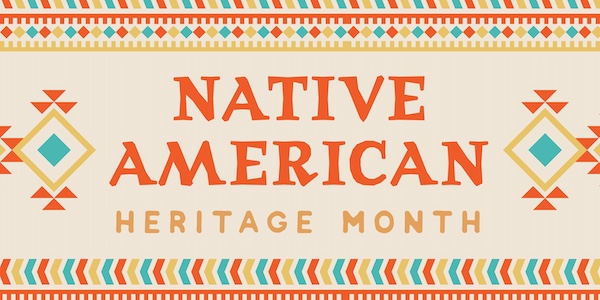
Jennifer Lisa Vest on Native American Heritage Month
Categories: Indigenous Cultures & Anthropology Interview
Jennifer Lisa Vest (Mikasuki Seminole Mixedblood) is the author of The Ethical Psychic, a 101 guide for psychics and energy workers to build an authentic, equitable, and culturally sensitive healing practice. She can also be found on Instagram and TikTok.
“Our ancestors appreciate being remembered, acknowledged, and honored. It is always appropriate to speak of them, tell their stories, do things in honor of them.”
What advice do you have for Indigenous folks looking to reconnect with their ancestry, heritage, and cultural practices when living away from their Indigenous land or if their Indigenous nation was forcibly assimilated?
Join your local American Indian Friendship House or find Native American community groups where you are. If you were not raised with Native culture or identity do not expect people to accept you with open arms. Approach timidly and humbly and try to respect the rules and etiquette of the group you are seeking to join. Answer questions asked of you about your lineage and background honestly and openly. If people tell you you cannot join a particular Native group, accept that and do not argue with them. They don’t owe you anything.
In Seminole tradition (mine) we have a practice called “camping at a distance.” This is where when you want to join a group you very quietly and respectfully position yourself quietly nearby so you can observe the proper practices. Over time members of the group may notice you and invite you in. They will look at your behavior and determine whether they want you to be a part of the group. Be gracious about your inclusion.
You can also try getting involved in activism on behalf of Native communities. Traditional Native American identity is connected more to cultural and spiritual practices, and to what a person does for the community rather than to blood. Make yourself useful. Be humble. Be observant. Be patient.
If you want to reconnect with your heritage try visiting the reservation or reserve related to your tribe. In the city seek out elders with the same or similar tribal affiliations and try to learn from them.
When and how can you ethically call upon your ancestors?
Our ancestors appreciate being remembered, acknowledged, and honored. It is always appropriate to speak of them, tell their stories, do things in honor of them. Calling them down to assist you, however, requires more reflection and consideration. As spirits on the Other Side have other things to do besides help out the living, we must respect their need to engage in activities that are most beneficial for their spiritual growth. When calling upon an ancestor to help you, always ask if your calling them is interrupting any other activities they are engaged in (e.g., spirit school or healing work). Ask them if they have time to help you. Ask them what the terms of your interaction should be. Ask them when and how and how often you should call on them. If, over time, a particular ancestor stops showing up, respect their need to move on and make yourself available for other ancestors to come through. Sometimes the ancestors we liked the least are the most interested in helping us because they regret how they treated us when alive. Be open to receiving help from any ancestor who has a high vibration and is interested in your highest good.
You can make a practice of always asking every ancestor you contact whether they are connecting with you for your highest good. If an ancestor is too busy to help you, do not allow that to be a reason to neglect in remembering and honoring their memory.
Is there anything specific that you’d like to share with Indigenous folks, both to those living on and away from their ancestral lands?
Because our people endured and continue to endure multiple campaigns of genocide, we have many many ancestors whose sacrifice must be remembered. We must live our lives in such a way that the sacrifices of our ancestors at the hands of the conquest, colonialism, relocation, boarding schools, slavery, and the reorganization and termination of tribes will not have been in vain. We are their seventh generation. We are their dreams. Our lives must fulfill those dreams.

